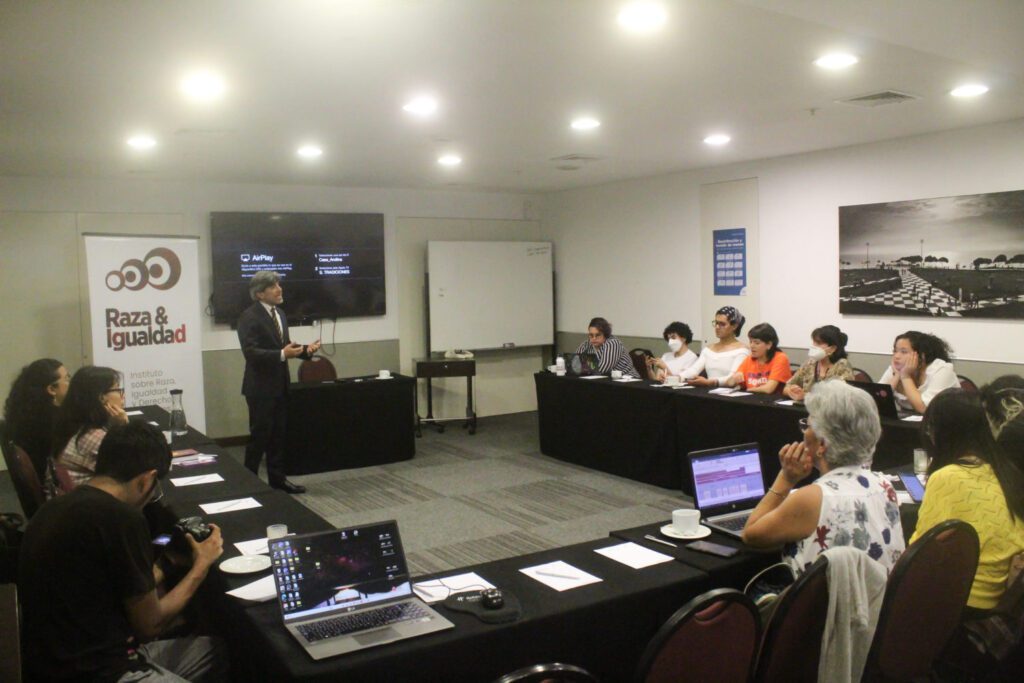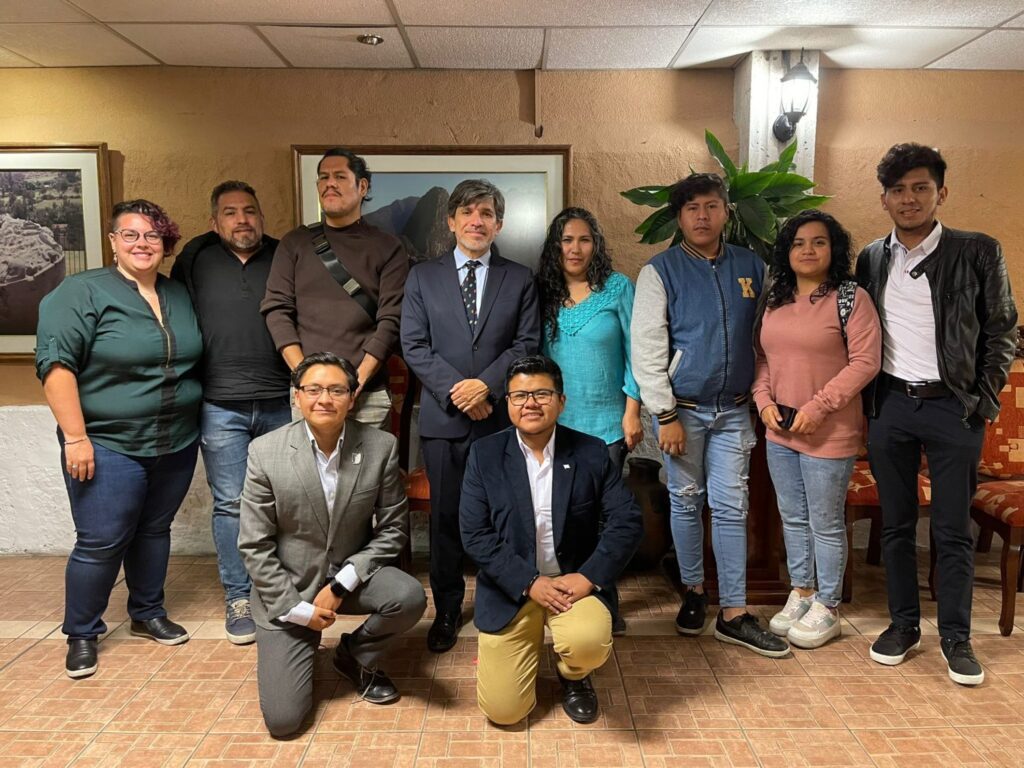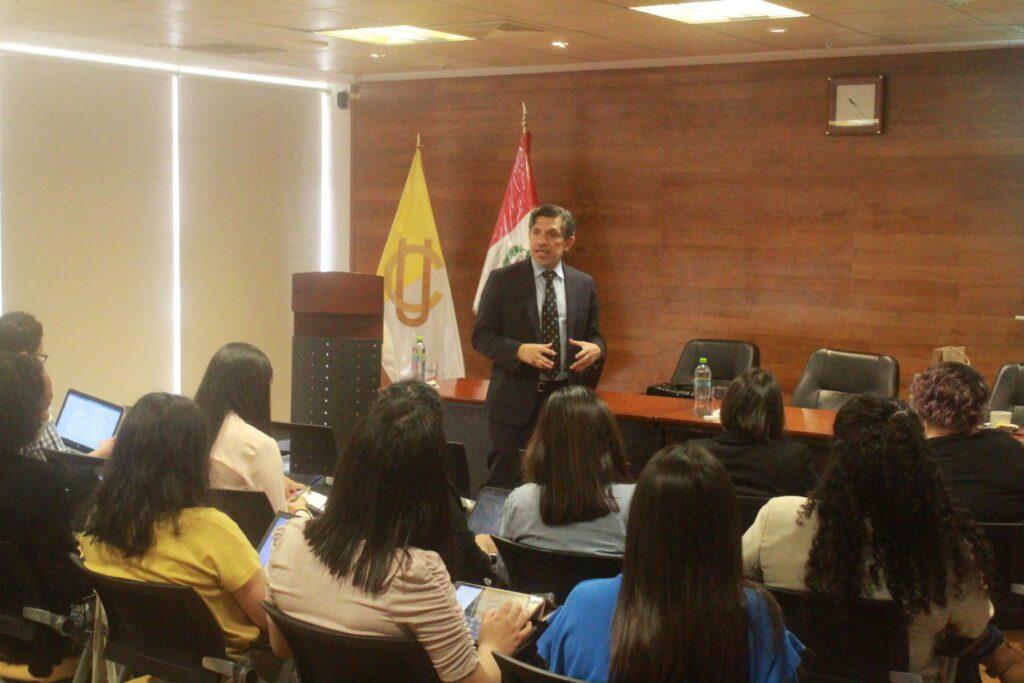Human Rights Day: In Search of Dignity, Liberty, and Justice
This year, the commemoration of Human Rights Day is marked by the beginning of the celebration of 75 years of the Universal Declaration of Human Rights (UDHR), which will be celebrated on December 10, 2023. The United Nations announced that it would launch a yearlong campaign to promote the UDHR centered around its legacy, relevance, and activism.
As we near the 75th anniversary of the proclamation of the Declaration – which established a grand variety of human rights and fundamental liberties to which all people, in every part of the world, have a right – it is important to reflect about what has gotten better and what has gotten worse over this time.
A good starting point for this reflection is the chosen theme of the United Nations for Human Rights Day this year: “Dignity, liberty, and justice for all.” In post-pandemic Latin America, they are three principles that are being seriously questioned by the aggravations caused by COVID-19 of the diverse crises that crosscut the region: inequality, poverty, racism and discrimination, authoritarianism, violence, and corruption.
Cuba: Civil Society in the Shadow of the New Criminal Code
On December 1, Cuba’s new Criminal Code entered effect, which involves a deepening of the situation of persecution and criminalization that activists, human rights defenders, artists, and independent journalists face, as it establishes new ambiguous offenses and increases the penalties for other existing ones, but always within the scope of freedom of expression and public protest. For example, the code states that it will sanction acts that it considers “provocative,” without specifying the meaning of this terminology.
During 2022 the island registered record levels of protest by citizens, principally due to the shortages of food and medicine. This was one of the drivers of the historic protests on July 11, 2021 and subsequent days that provoked the detention of over 1,000 people, of which over 600 remain in prison.
Nicaragua: The Repression that Endures and Reinvents Itself
While the sociopolitical and human rights crisis in Nicaragua continues to deepen, the authoritarian regime of Daniel Ortega and Rosario Murillo continues to evade its international obligations on human rights and is making use of new repressive strategies to attack dissident voices.
The government has denied entry to Nicaraguans in retaliation for their activism or political role. The most recent cases are those of Anexa Alfred Cunningham, lawyer, and expert member of the United Nations Expert Mechanism on the Rights of Indigenous Peoples, who – despite her privileges and immunity – was rejected entrance to Nicaragua this past June; and the journalist Luis Felipe Palacios, delegate of the EFE agency in Managua, who while boarding a plane in Miami to return to Nicaragua, was notified that he was not authorized to return.
In addition, according to the monitoring of the Mechanism for the Recognition of Political Prisoners, at least 235 people were found to have been deprived of liberty for political reasons in state-run and clandestine facilities of which “information on torture and ill-treatment continues to be received… and information has been provided on cases of sexual and gender-based violence…” Additionally, between the most recent arrests, a new pattern of repression is emerging: when the National Police have not found the persons of interest to them, they have proceeded to arbitrarily detain relatives of those persons.
Colombia: The Second Most Dangerous Country for Social Leaders in the Region
One of the principle human rights concerns in this country is the continuing violence against social leaders and human rights defenders, who are persecuted, kidnapped, and assassinated, as retaliation and punishment for their daily labors. According to statistics from the Institute of Studies for Development and Peace (Indepaz), in 2022 alone 180 social leaders have been assassinated, including Breiner David Cucuñame, a 14-year-old environmentalist.
As such, information from the Ombudsman’s Office indicates that between May and August of 2022, they received and verified 62 cases of homicide against social leaders and human rights defenders, according to a press release from the Inter-American Commission on Human Rights (IACHR) about this problem in the region, which is particularly worrying in Brazil, Guatemala, Honduras, and Mexico as well.
Peru: Between the Political Crisis and the Onslaught of Anti-rights Groups
On December 7, Peru opened a new chapter in the deep political crisis it has been experiencing for months. Hours after President Pedro Castillo announced the dissolution of Congress to install a new one with the task of beginning a Constituent Assembly, the Legislature proceeded to approve his dismissal and Castillo was arrested. Vice-President Dina Boluarte was appointed in his place. This impeachment process – or vacancy motion – was the third one faced by Castillo in less than two years, as serious accusations of corruption are weighing on him together with several Ministers and close associates.
In addition, conservative groups in the legislative branch are trying to position an agenda to the detriment of women and LGBTI+ persons, by directly attacking the gender focus in education, the decriminalization of abortion, LGBTI+ rights, for which they openly invite anti-rights groups to their offices to consult them. The last bill approved was Bill 904/2021, which was proposed by the ultra-conservative Renovación Popular party and takes away autonomy from the Ministry of Education (Minedu), as well as eliminates the gender approach and comprehensive sexual education in the content of educational materials in schools.
Brazil: Protagonism of Social Movements in the Fight for Human Rights
The protagonist of the fight for the protection and guarantee of human rights in Brazil is the leadership of social movements that historically have denounced the situation of the excess use of force by the police in the Favelas, attacks on the lives of black Brazilians, LGBTI+, practitioners of religions of African origin, and racism in the Brazilian justice system that has generated impunity for aggressors. Indigenous activists have exposed the impacts of mining and illegal logging in their territories and how the state has failed to protect the lives of its peoples, heralding a call to the international community to think on solutions and strategies that enable the defense of the population.
Since January 2019, with Jair Bolsonaro assuming the presidency, human rights offenses have resurged against the black population, indigenous peoples, and the LGBTI+ community in Brazil, marked by racism, prejudice, discrimination, and hate speech. Additionally, due to violent actions committed by the state itself, which is supposed to protect and promote human rights, as well as the dismantling of public policies created by previous governments, the situation has weakened the maintenance of wellbeing for people in vulnerable situations in the country.
Thus, the Brazilian black, indigenous, and LGBTI+ movements are actively working to build an agenda to combat racism and all forms of intolerance, prejudice, and violence, with a view to guaranteeing and protecting human rights.
Dominican Republic: Under a Policy of Discrimination and Exclusion
In the Dominican Republic, the government of Luis Abinader is carrying out a racist and xenophobic campaign of persecution and massive expulsions against Haitian immigrants, Dominicans of Haitian descent and Black Dominicans. In this sense, according to data from the Haitian Directorate of Migration, at least 50,000 Haitians have been deported from the Dominican Republic in the last quarter (September-November).
Human rights organizations have also documented house raids without warrants, threats and torture by police and migration agents, arbitrary detentions, including the arrest of pregnant women and children unaccompanied by their legal representatives, theft of belongings, unhealthy conditions in detention centers, expulsions of persons through unofficial border points on days and at times other than those established, among other violations.
In order to legitimize these serious human rights violations, the President issued Decree 668-22 “to prevent and prosecute invasions and irregular occupations of private property and the State” on November 11. This constitutes violations of international human rights treaties and covenants, particularly those referring to the right to refuge.
Thus, a hopeless scenario arises, where the existence of national and international mechanisms for the promotion and protection of human rights does not seem to be enough for the States to adopt and implement policies and measures that guarantee a life of dignity, freedom, and justice for all people. What is needed to achieve this goal, which for now appears to be a mirage? How can we move from words to deeds?
The human rights movement, made up today of hundreds of organizations that work in the promotion and defense of fundamental rights and freedoms from and for various sectors, has been gaining significant strides in making visible the needs and demands of vulnerable and excluded population groups, formulating public policy recommendations, implementing projects with social impact, and activating protection mechanisms at the national, regional, and international levels.
However, in recent years, a barrier has been erected that prevents us from moving forward with a firm footing and is composed of different factors: the lack of political will, the increase in hate speech and conservative groups, the strengthening of authoritarian governments, the operation of irregular armed groups with impunity, and extractivist activity, to mention a few.
Joining Forces, Sharing Hope
Faced with the multiple difficulties for the promotion and protection of human rights, the Institute on Race, Equality and Human Rights (Race and Equality), together with thirteen civil society organizations across Latin America and the Caribbean, decided to lead the creation of the Regional Forum on Human Rights, RegionaR. Analyzing the regional context from an intersectional perspective, this initiative looks to overcome the fragmentation and chart a path that facilitates the integrated and simultaneous defense of all human rights.
The Forum held its first joint meeting on November 29-30 in Bogotá, Colombia, through the Regional Conference on Human Rights, RegionaR. In this space, more than 150 social organizations from across the region attended to converse, reflect, and establish common action points to continue their work. The result was a joint letter with six key points for the defense of human rights, fundamental liberties, and the protection of Mother Earth from an intersectional, diverse, inclusive, and pluricultural perspective.
Race and Equality, in its firm commitment to the promotion and protection of human rights, considers this type of joint work key to achieving structural changes and constructing an inclusive and democratic society. Through joining wills and coordinating actions we will be able to have a complete panorama about reality and what is necessary to do in order to transform reality, and we can formulate strategies of effective advocacy with States and international mechanisms, so that our recommendations are taken up and implemented. In the search for dignity, liberty, and justice, unity is strength.





